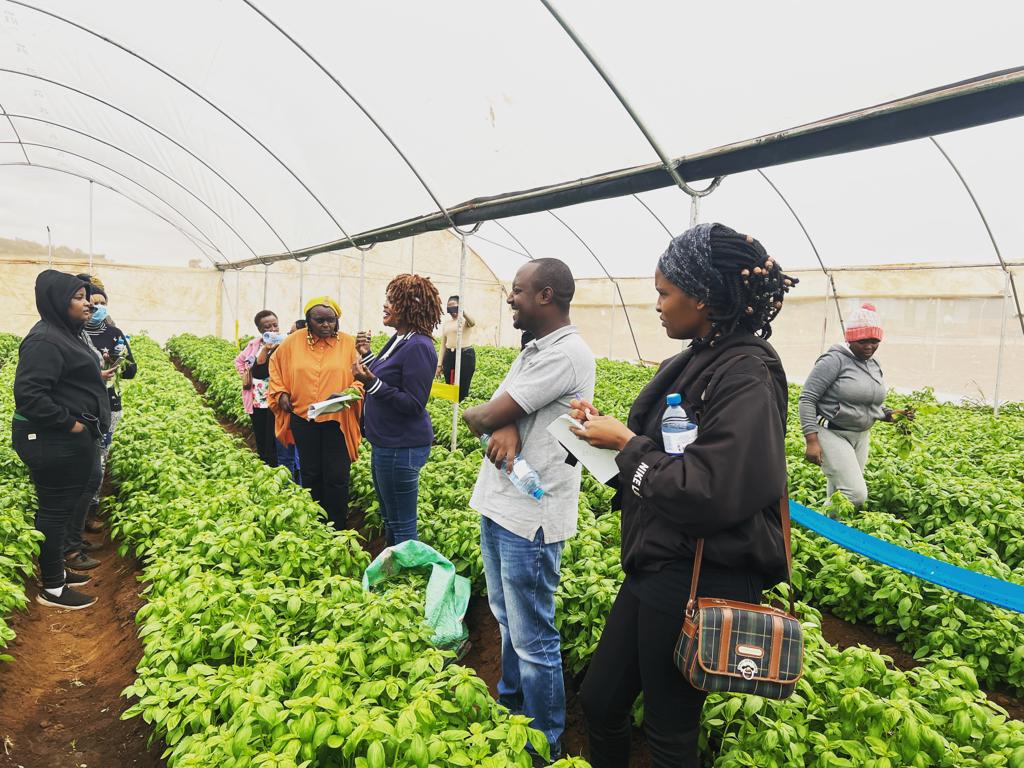Agribusiness
Farmer on Fire Unveils ASAL Climate Diversity Recovery Initiative

Farmer on Fire Ltd has launched a capacity-building initiative for school-aged children and women in Kenya’s Arid and Semi-Arid Lands to improve food security, economic empowerment, and climate sustainability.
The initiative intends to provide targeted technical, financial, and entrepreneurial capacity-building and support to women, youth, and other underprivileged populations.
This is to encourage their participation, ownership, employment prospects, and incomes in agriculture, benefiting individual women while also supporting development in the arid region.
Wangari Kuria, CEO of Famer on Fire Ltd, stated that the initiative aims to help climate-resilient agriculture and livelihoods in Kenya’s vulnerable pastoralist regions.
Through improved end-to-end agronomic support, extension services, small and medium enterprise development, supporting governance frameworks, and increased financial investment with a gender and social inclusion lens, it will assist hundreds of smallholders in intensifying, diversifying, and reducing risks in maize-based farming and over-reliance on pastoralism.
“The programme will support the youth and women in the ASAL areas to implement agribusiness gardens of indigenous vegetables that include mushrooms that can be scaled and or replicated as well as train them on digital marketing skills of their farm produce, using online platforms to reach a broader market,” Kuria said.
Harvesting and collecting rainwater, building concrete water reservoirs within the homestead, and developing and training on eco-cook stoves to promote tree conservation and alleviate health-related difficulties are all part of the programme.
The effort will also include training on BSFLarvae production, which provides an economical protein source for animal feeds, ensuring that their livestock receives the nutrition they require.
This, as well as green housing and irrigation farming, is being done with the assistance of partners in order to educate the excluded group about the benefits of contemporary technology, which boosts production efficiency.
“We are not trying to change the culture of the pastoralist community, we respect and see the significance of it. However, in the wake of climate change, societies need to adapt to the erratic weather patterns and increased pest infestations leading to climate-related poverty,” she said.
“We want to empower these communities to better adapt to these changes,”
Kenya, according to Kuria, is at risk of experiencing even higher temperatures, shorter growing seasons, and more severe droughts and floods.
Maize, a staple crop that accounts for up to 75% of cropland in some parts of the region, is particularly vulnerable, with yield decreases of 15% expected among other climatic impacts.
Many of the impacted areas already have severe hunger and malnutrition, with women and children from disadvantaged and vulnerable pastoralist communities bearing the heaviest cost.
“If these systems are sustainably diversified, they could contribute to stabilise the regional and global Agrifood systems,” Kuria noted.
According to the United Nations, Kenya’s Arid and Semi-Arid Lands (ASALs) occupy 89% of the country, covering 29 counties and a population of approximately 16 million people.
For decades, these areas were perceived as unproductive, with stories of cattle rustling, drought, insecurity, and poverty masking the region’s immense potential, particularly in the renewable energy industry, tourism, and animal production.











